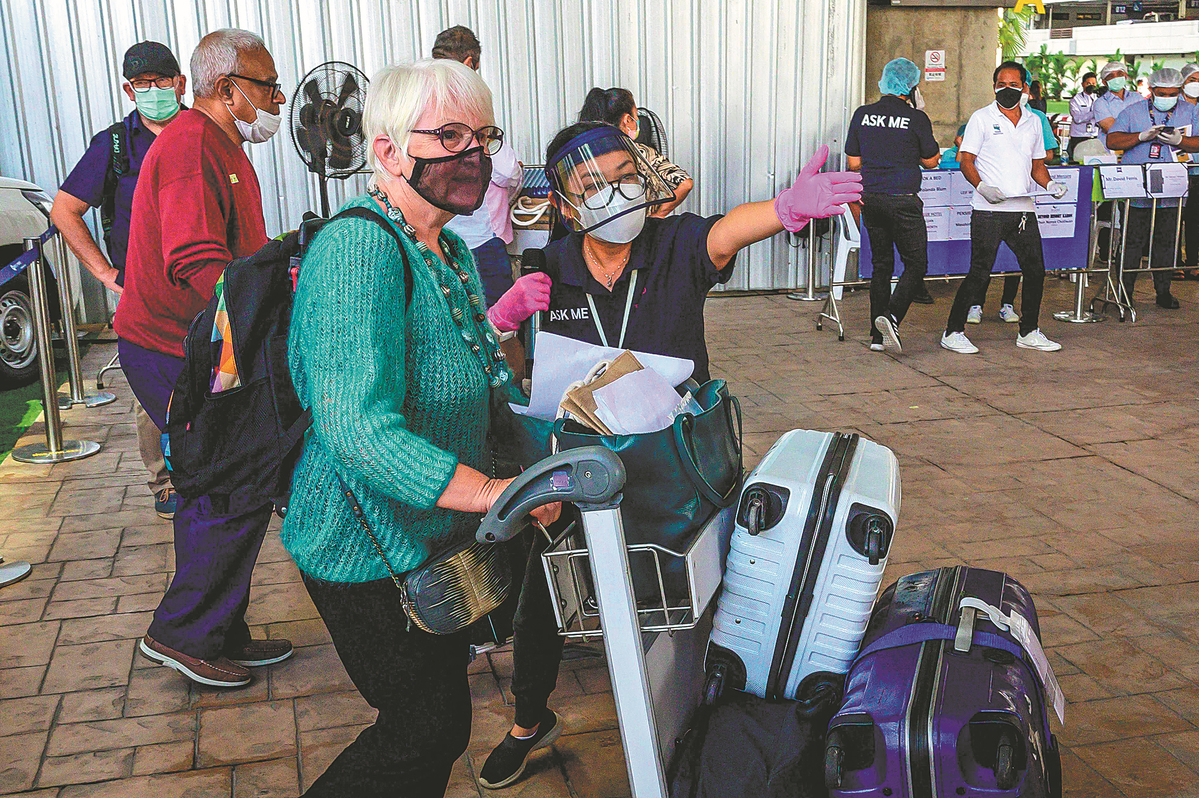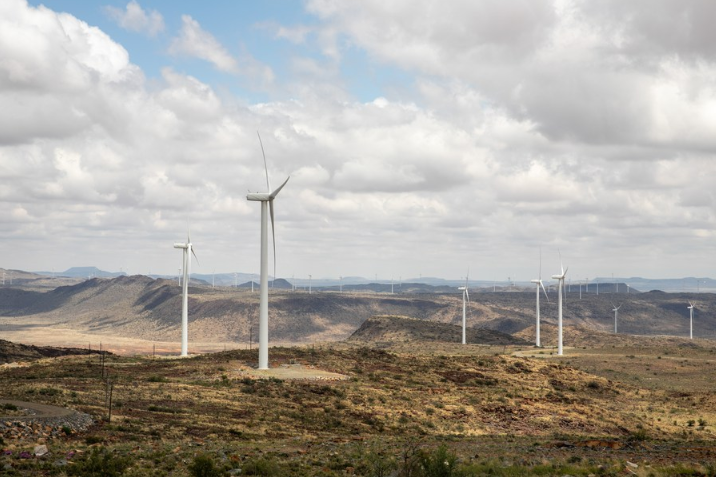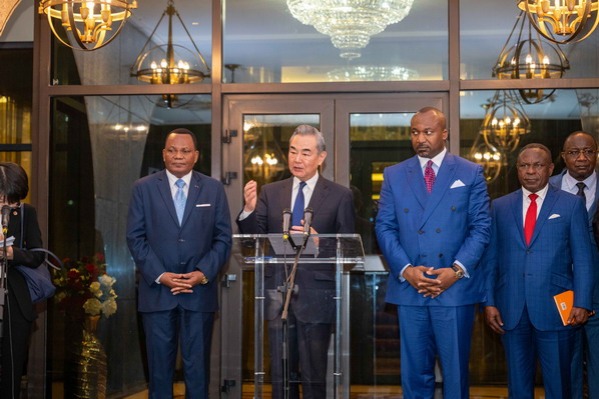Asia-Pacific countries roll out welcome mat


Thais step up pitch for tourists, and stranded Australians finally fly home
Thailand opened its doors wider to visitors on Monday in a closely watched move by the tourism-reliant nation that comes amid an easing in border restrictions in parts of the region.
In Thailand, the country began welcoming fully vaccinated tourists from more than 60 countries and regions. In Australia, it was long-stranded citizens that were feted on their arrival by loved ones at airports that day.
Cambodia aims to follow the example of its bigger neighbor by opening up partially to vaccinated tourists from the end of this month. Thailand had earlier allowed limited numbers into some tourism hot spots.
Hotel bookings in Thailand are increasing as the country's reopening draws interest from people in the approved countries and regions, Tourism Authority of Thailand Governor Yuthasak Supasorn was quoted as saying by the Bangkok Post on Monday.
But not everyone is happy. The number of daily coronavirus infections remains high in Thailand, prompting concerns among citizens and health experts. The country reported 8,165 additional cases on Monday, taking the total number to 1,801,702, according to data from the health ministry.
In an online survey conducted by Suan Dusit Rajabhat University in Bangkok, the results suggest that more than 60 percent of Thais think now is not the right time to bring back tourists without quarantine requirements.
Among the 1,392 people polled, 74.78 percent of the respondents said an inoculation rate of over 70 percent of the population with quality vaccines is among the necessary conditions for reopening.
"We still have a large proportion of citizens who have not yet been fully vaccinated," said Thira Woratanarat, associate professor at the Department of Preventive and Social Medicine at Chulalongkorn University in Bangkok. "This will be like catching the tiger without weapons since the reopening will be followed by higher risks of transmission from crowdedness."
Immunity levels
Thira told China Daily he hopes the government can focus more on enhancing the COVID-19 screening system and strengthening personal protection protocols. The professor also wants the government to boost immunity levels in the population by adjusting the national vaccine policy.
In Australia, the easing in border restrictions in some states was the first in more than 18 months. Now allowed to fly back are vaccinated Australian citizens, permanent residents and their immediate families. Australians are also allowed to leave the country without needing an exemption.
Coronavirus restrictions also were eased in South Korea, with the start on Monday of a three-phased "Living with COVID-19"strategy, according to the country's Central Disaster and Safety Countermeasure Headquarters.
Under the first phase, limits on business hours at multiuse facilities will be eased, while nightlife facilities will be allowed to operate until midnight.
"Just like everybody else, I am very excited, hopeful and welcome this transition," said Sarah Ok Shin, a professor with Korea University's College of Medicine.
But as a medical expert, Shin said she is also worried that COVID-19 infections may increase, especially with the colder weather.
South Korea reported 1,686 new COVID-19 cases on Monday, bringing the national tally to 366,386, data from the Korea Disease Control and Prevention Agency shows. Some 80.1 percent of the population have received a first dose of a COVID-19 vaccine, and 75.3 percent have been fully vaccinated.
Under the second phase of the strategy, the restrictions on opening hours at nighttime entertainment facilities will be lifted. Under the third phase, the limit on the number of private gatherings will be removed.
However, Shin said the efficacy of vaccines is not as good as had been expected due to the new variants. She wants more booster shots available, especially for the elderly and high-risk groups.
"Our hope is that in the near future, hopefully next year, COVID-19 will become like an endemic flu," said Shin.
Jerome Kim, director-general of the nonprofit International Vaccine Institute in Seoul, said hospitalization rates will be among the key data to be watched.
Health authorities have warned that new daily infections could reach around 5,000. According to Reuters on Monday, health ministry spokesman Son Young-rae said if the numbers rose to near 10,000, the government would halt the easing process.

































